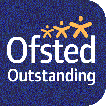
30 Shiphay Lane, Torquay TQ2 7DY
E: admin@tggsacademy.org
T: 01803 613215
Y7-11 Absence Line: 01803 653 750
30 Shiphay Lane, Torquay TQ2 7DY
E: admin@tggsacademy.org T: 01803 613215
Y7-11 Absence Line: 01803 653 750

KS3 Religion, Philosophy & Ethics
KS3 Overview
Our aim at KS3 in RP&E is to introduce students to, and engage students with, a variety of topics and skills relevant to our subject. It is important that students see the link between what is studied and what is going on in the world around them and so we make every effort to ensure our units of work are topical.
Building on KS2 and preparing for KS4…
We start Y7 with a unit called the A-Z of religion which introduces students to various religious, philosophical and ethical issues. The unit gives us the opportunity to find out what students already know from KS2; furthermore, it lays a foundation for the rest of their studies at TGGS as each topic is revisited at KS3 and/or KS4. Throughout KS3, we build the skills that are necessary for KS4; these include being able to explain the impact of belief on a person’s actions, as well as being able to explain and evaluate beliefs.
KS3 Assessment
In lessons we have low stakes quizzes to recap prior learning, to assess what students have learnt in the lessons and to address any misconceptions. We use a variety of methods including key word bingo, quizzes, and Kahoot.
We also have assessments that are self, peer and/or teacher assessed. Students are then given feedback to improve their work and set targets for future work.
KS3 Content
|
Y7 Content Autumn |
A-Z of religion. Our aim is to engage students at the outset of their RP&E journey with a variety of topics that our subject covers. Each lesson in this unit focuses on a different aspect of RP&E based on a letter of the alphabet. For example, A is for atheism and non-religious beliefs. This unit serves to assess what students might already know and to build on any prior knowledge. It also lays a foundation for when we revisit the topics later in KS3. |
|
Y7 Content Spring |
Jesus: mad, bad, good or God? This unit looks at the life and teachings of Jesus and aims to build on what students might have learnt at KS2. It lays the foundation for other units at KS3 where we cover Christian beliefs and practices. We want students to begin to engage critically with some of the diverse views that people might have about Jesus and to recognise that even within Christianity there might be different interpretations of his life and actions. If possible, we will invite Christians from Linx in to speak to students about Christian beliefs about Jesus. |
|
Y7 Content Summer |
What might it mean to be a British Sikh? Many students will not have learnt about Sikhi before and so this unit this will be an introduction to some key beliefs, concepts, and values. The emphasis throughout is on how these beliefs and values might impact on the actions of Sikhs in Britain and on why there is diversity within Sikhi. Students will revisit Sikhi in the year 8 unit “Good, bad, right, wrong? How do I decide?” |
|
Y8 Content Autumn |
What difference might it make to be an atheist in Britain today? This unit of work builds on non-religious worldviews that were studied in the A-Z of religion unit and may have been studied at KS2. Students consider why there is a diversity of non-religious beliefs. We analyse sociological data to consider changing trends in belief in Britain and consider why this might be the case. Students also learn about Humanist rites of passage ceremonies, Sunday assembly and how non-religious beliefs might be expressed in art. Good, bad, right and wrong: how do I decide? This unit encourages students to decide whether morality is absolute or relative before considering how religions make moral decisions. We evaluate moral guidelines from Humanism and different religions before reflecting on whether religion makes the world a better place or not. |
|
Y8 Content Spring |
What is truth? This unit introduces students to epistemology - the study of knowledge. It aims to get them to question what they assume is truth. Students explore the meaning of Plato’s cave and draw links between it and the Truman Show film. It supports SMSC, particularly the spiritual component through its consideration of philosophical questions. Should Buddhists be organ donors? The aim of this unit is to introduce Buddhism to students by linking the Buddha’s life and teaching to organ donation. This shows how religions must be dynamic and respond to contemporary issues. It also emphasises how Buddhists might interpret teachings differently to either support or oppose organ donation. through the lens of a contemporary issue. This unit links to the unit: Should religious people be greener than everyone else? Also, the Y9 unit on crime, both of which include Buddhist teachings. |
|
Y8 Content Summer |
Is there any evidence for life after death? This unit of work explores different “evidence” for life after death such as ghosts, mediums, hypnotic regression, near death experiences and accounts of being reincarnated. It links with the earlier unit on atheism in Y8 as it considers reasons why atheists might not find the evidence for life after death convincing. It also links to GCSE RS in units about life after death. Students will have the opportunity to debate how convincing they find the evidence is before completing an assessment where they explain their own view before explaining why someone might have a different view. Should religious people be greener than everyone else? Many students at TGGS are interested in the environment and this unit explores Humanist, Christian and Buddhist views about environmental and animal rights issues. Through case studies linked to the Amazon rainforest and tiger parks, we consider how Religious and non-religious beliefs might motivate someone to act to protect the environment. This unit builds on students’ prior knowledge – for example Christian creation stories, humanist and Buddhist teachings. Christian beliefs about the environment will also be revisited as part of GCSE RS. |
|
Y9 Content Autumn |
What is the most effective way to deal with violent crime in the UK? This unit aims to engage students with a topical issue, violent crime in the UK, and explore Christian and Buddhist responses to it. Students will learn that even within a religion there may be different responses to the issues we look at – the aims of punishment, different types of prison, knife crime, the death penalty and forgiveness. This unit builds on students’ prior knowledge of Christianity and Buddhism. It also introduces students to the skills of analysis and evaluation in RP&E. These are useful transferable skills and will be particularly useful to those who opt to GCSE RS. |
|
Y9 Content Spring |
Is GCSE RS for me? This unit gives students information about what is studied at GCSE RS and how the subject might be useful for further education/careers through case studies and role play. What is good and what is challenging about being a Muslim in the UK? This unit was written in collaboration with TGGS Muslim students who identified issues that they felt would be relevant, topical and interesting for students at TGGS to look at. The issues looked at include arranged marriage, LGBTQ+ issues, the role of women, Islamophobia and halal food. Where relevant, students consider why there is diversity of opinion amongst Muslims about these topics. It also considers whether it is more or less challenging to be a Muslim in Devon than elsewhere in the UK. This unit links to the GCSE RS unit: Relationships and Families and has clear links to British Values. |
|
Y9 Content Summer |
What is anti-Semitism and how can it be challenged? This unit introduces students to Judaism (which is studied further in GCSE RS). It builds on lessons on prejudice and discrimination from the previous unit (challenges facing Muslims in the UK) to consider historical and current examples of anti-Semitism, possible reasons for it and Jewish responses to it. Use is made of the Holocaust Educational Trust’s resources, and the importance of not just identifying the Jews as victims has been noted, particularly in the lessons on resistance and Jewish responses. This unit links with Y9 history which is studied in the autumn term and gives a foundation for the study of this unit. |
Useful links & resources for KS3:








